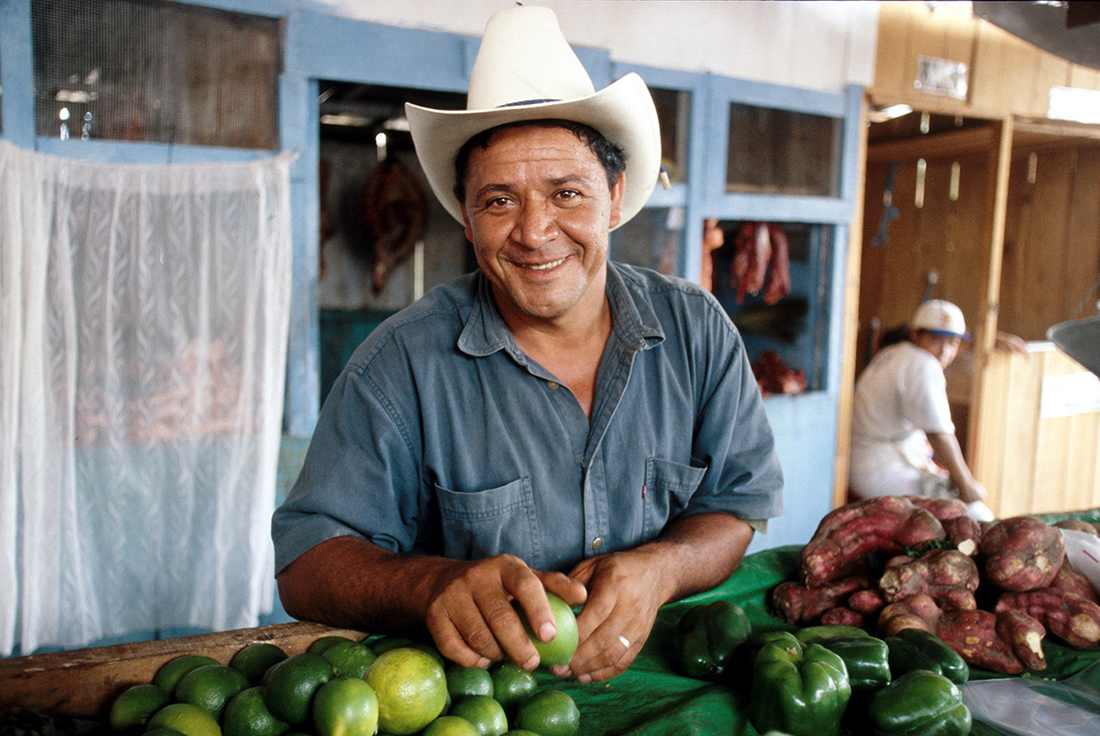Honduras: Project Visits
Nearly one in four children are malnourished in Honduras, and this rate is as high as 60 percent in the country’s Dry Corridor.
CARE began operations in Honduras in 1954, providing emergency assistance to hurricane victims and running small-scale food programs. CARE officially established its country office in 1959, beginning with food distribution programs and eventually moving toward a sustainable development program.
Today, Honduras is one of the poorest countries in Central America and currently grapples with high rates of food insecurity, malnutrition, and gender inequality. Despite the potential for the country to produce enough food, those living in poverty – particularly women and children – often do not have the dietary knowledge, access to markets or adequate economic means to acquire sufficient nutritious food or to improve their livelihoods.

Nearly one in four children are malnourished in Honduras, and this rate is as high as 60 percent in the country’s Dry Corridor, a region in west and southwestern Honduras characterized by frequent and prolonged drought, natural disasters, environmental degradation and chronic food insecurity. CARE is managing several programs in the Dry Corridor, focusing on water smart and sustainable agriculture, rural economic development, micro-savings and female-inclusive governance.





PROSADE LEMPA- Promotion of Food Security, Economic Development and Social Inclusion
The PROSADE LEMPA program focuses on female small-scale agricultural producers who do not equally benefit from the economic growth of their societies, and indigenous Lenca communities who are subject to wide-spread discrimination. The program objective is to improve the quality of life of women and men, girls and boys living in conditions of poverty, exclusion, vulnerability and social risk in the Dry Corridor, creating conditions to achieve food security, access to employment in dignified conditions, and improving incomes through productive linkages.
Program activities include development of rainwater harvesting and micro-irrigation systems, micro-savings community-based groups and formal training of community leaders to develop and strengthen inclusive governance structures.
PROLEMPA- Promotion of Rural Economic Development for Women and Youth
The PROLEMPA project is improving the economic welfare of small-scale entrepreneurs and producers, especially women, youth, and indigenous people living in poverty in the Dry Corridor.
Project activities include:
Coffee Value Chain: CARE focuses on inefficiencies around soil and plant management; direct access to markets; gender biases in producer organizations; inequality of participation in certification programs; lack of agricultural credit and creative financial products for the rural poor; and gender stereotypes impacting female productivity and ownership.
Rural Tourism: CARE is working with local communities including the municipalities to develop and promote rural tourism; promoting female owned small-scale business; and assisting rural business with certifications allowing access to markets, credit and financial resources.
Microfinance: Recognizing that women and indigenous people are unable to access loans from financial institutions, CARE has established the Loan Guarantee Fund. The fund provides access to financial services for small-scale entrepreneurs in the rural tourism and coffee growing sectors ensuring traditionally marginalized people are included in the local economy.
Nourishing the Future- Funded by CARGILL
The Nourishing the Future project is committed to improving food and nutritional security through education, development of entrepreneurship skills, and access to marketing, from an approach of gender and climate change.
Project activities include improving access to adequate nutrition; improving family economic income through agriculture and livestock production and market access; raising knowledge on food security in households; and implementing new technologies to adapt agriculture and microbusiness to climate change.